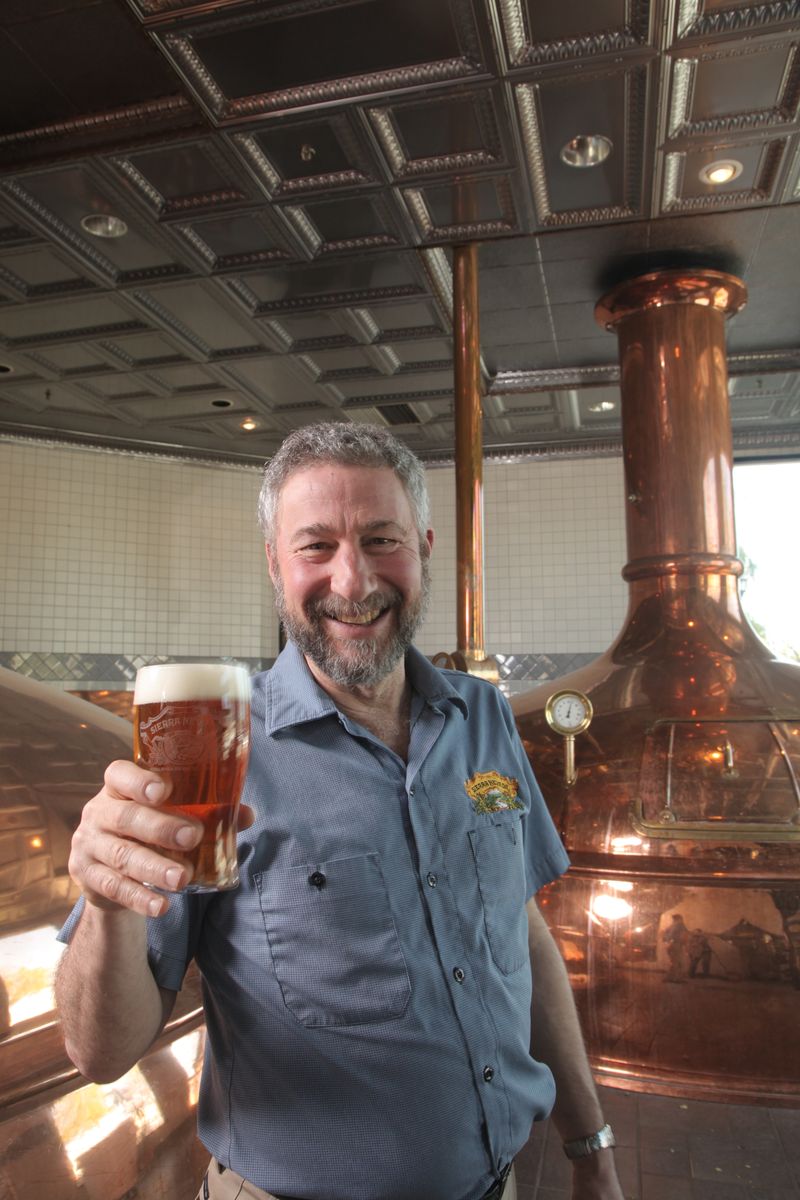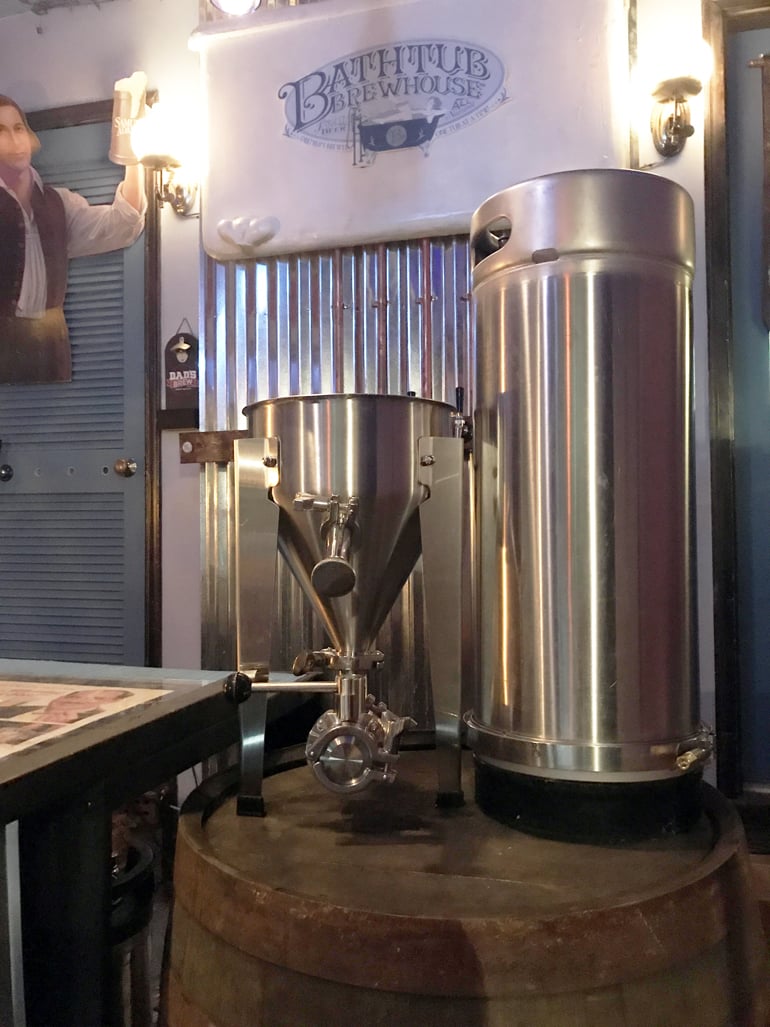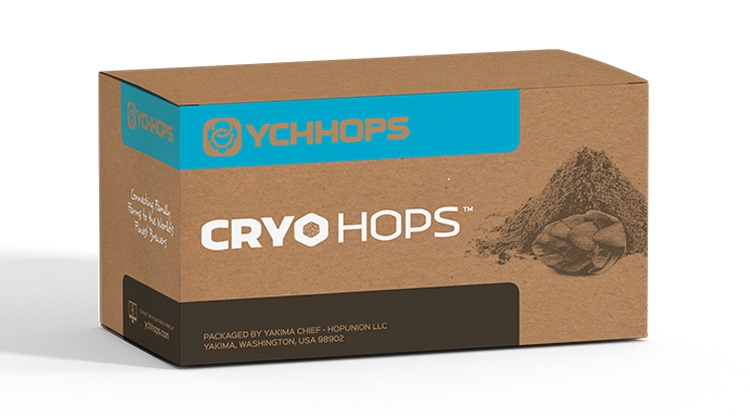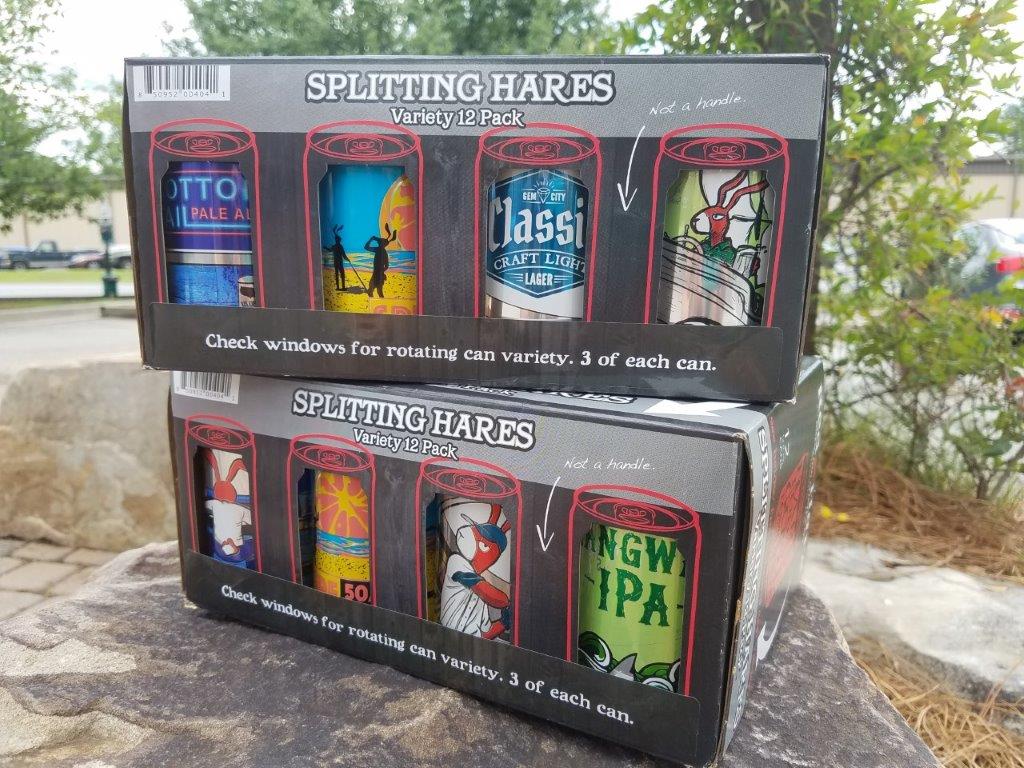Start 14-Day Trial Subscription
*No credit card required

Little Innovations in Brewing (Issue 31)
While large-scale advancements in brewing and packaging usually get noticed by craft beer aficionados, smaller innovations like improved pop-top rings for cans, scanners on bottling lines to check for low-fills, and more durable linings for beer transfer hoses usually fall under the radar. All innovations push craft brewing forward, and lesser advancements can add up to increased profits for brewers and better craft beer for consumers.
Sometimes, small innovations come together to improve the entire brewing process at a facility. A little over a year ago, Back Forty Beer Company in Alabama implemented the lean manufacturing philosophies of "Kaizen," a Japanese business strategy of continuous improvement in regard to working practices, personal efficiency and organization that's been used in automotive manufacturing for years. Back Forty's CEO Jason Wilson explains, "The principle is simple. Success comes from thousands of small changes along the way. After about six months of Kaizen, we started seeing real results at the brewery. We weren't really able to identify any one improvement that was driving these results, and that's exactly the point. It's a fundamental change to the culture of an operation that leads to exciting innovations. It's amazing what you can accomplish when you aren't digging around a messy shop looking for a screwdriver."
An Eye on Innovation
Constant innovation is central to the way of life at the Sierra Nevada Brewing facilities in California and North Carolina. Sierra Nevada founder/owner Ken Grossman sees continual, small innovations as an exciting, interesting and fun part of the brewing business. "Take for instance our Beer Camp Across the World 12-pack," notes Grossman. "The pack includes nine 12-ounce bottles and three 16-ounce cans, brewed with collaborators around the world for a one-of-a-kind variety pack of flavors, styles and packaging. When we first brewed Beer Camp back in 2014, we were the first to mix it up like that, and this year we're doing it again with beers brewed with some of the most innovative craft brewers out there."
Sierra Nevada founder/owner Ken Grossman sees continual, small innovations as an exciting, interesting and fun part of the brewing business.
If there's an innovative process, machine or environmentally responsible procedure to improve a brewery, Sierra Nevada most likely has given it a go. "On the production side and in all areas of our operation, we’re always looking at ways to reduce water consumption," says Ken Grossman. "In packaging, our team came up with a plan to reduce water usage in our Chico brewery by more than 750,000 gallons a year by replacing the keg conveyor system with a waterless solution that operates dry with no lubrication needed. The lines run cleaner with less noise, providing our employees with a better working environment. We hope that our continued investment in people and technology helps raise industry awareness of sustainable business practices, encouraging more brewers to employ solar energy collection and storage solutions as well as carbon-reducing microturbines and other zero-waste initiatives. Today is a great time for craft brewing, but it's our obligation to do so responsibly.”
Navigating New Recipes
On a much smaller scale than Sierra Nevada, Bathtub Brewhouse, a Georgia brewery-in-planning, recently acquired a Blichmann Cornical keg and conical fermenter combination. A conical bottom clamps onto the keg and converts it into a pressure-capable fermenter with a yeast collection reservoir at the bottom. "To be able to ferment, carbonate and serve beer from the same vessel has saved Bathtub Brewhouse countless hours in formulating our test batches," notes co-owner Jonathan Duncan. "By not having to transfer beer from one vessel to another, we also don't have to worry as much about oxidation and contamination."
Bathtub Brewhouse, a Georgia brewery-in-planning, recently acquired a Blichmann Cornical keg and conical fermenter combination.
Most craft brewers agree that recipe innovation starts on a small pilot system. Atlanta's Three Taverns Craft Brewery embraces this model with the recent installation of an experimental pilot system called Genesis II - a 1.5 barrel brew kit that serves as the "launching pad" for Three Tavern's new recipes. Owner Brian Purcell muses, “In 2015, we started our Imaginarium Project - brewing innovative, experimental beers on my old homebrew system known as Genesis, and serving these extremely limited beers in our tasting room. Our newly installed pilot system and new three-barrel fermenters will allow us to produce larger batches for testing more often in the taproom and for sending to the market in limited quantities."
Sour Power
Craft beer geeks across the globe now crave beer styles that offer noticeable acidity, but acid producing microbes like Lactobacillus bacteria can run rampant through a brewery, propagating in unwanted places and spoiling classic beer styles. As an answer to this problem, many craft brewers have adopted the innovative process known as "kettle souring." Sweet liquid from the mash is transferred to the brew kettle near the end of the day, but instead of cranking up the heat and starting the boil, brewers add a culture of Lactobacillus directly to the cool wort in the kettle. The lid is sealed, and the bacteria partially ferment the beer overnight, producing a clean, crisp lactic acid presence. Brewers then boil the wort, killing the precarious bacteria but preserving the desired acidity that carries through the regular fermentation into the finished beer. Kettle souring doesn't produce the depth and complexity of fermenting and aging beer for a long period with a variety of "wild" and/or acid-producing microorganisms, but kettle souring provides a safer pathway for making acidic beers like Gose and Berliner Weisse.
High Tech Malt & Hops
Not just confined to breweries, small innovations take place in various industries related to craft brewing. Along with a proposed expansion of its Asheville malting facility, the guys at Riverbend Malt House constantly experiment with fresh procedures and methods to streamline the malting process. Riverbend's expansion plans will create 15 new jobs and invest $9.5 million over the next few years in the latest malting gear. “The growth of a home-grown, sustainably-oriented industry supplier like Riverbend Malt is important to Asheville and Buncombe County and offers significant competitive advantage to our local brewers,” notes Buncombe County Chairman, Brownie Newman.
As the country's major innovators in hop processing and packaging, Yakima Chief - Hopunion produces potent hop resin extracts concentrated from soft hop pellets by clean, efficient carbon dioxide extraction. Brewers love the hop extract because of its clean bitterness and aroma and superior foam stability. The concentrated extract also means lower shipping costs, smaller storage space requirements and no vegetal hop leaf particle residue during the brewing process.
Yakima Chief - Hopunion has also announced an exciting line of Cryo Hops that makes use of an innovative cryogenic technology where whole hop cones are processed into concentrated lupulin hop powder by way of exposure to extremely cold temperatures. The process takes place in a nitrogen atmosphere, reducing oxidation in the delicate hop oils. Cryo Hops provide deep hop flavor and aroma, allowing craft brewers to produce extremely hoppy beers without astringency or grassy hop leaf flavors. Yakima Chief reports, "During early R&D trials, brewers reported that our product noticeably enhances hop aroma and flavor contributions, specifically citing 'juicy' and 'resinous' characteristics. Brewers also reported an average three to five percent increase in yields due to reduced brew kettle and fermenter hop sediment."
Great Things Come in Eye-Catching Packages
Cans, bottles, six-pack holders and case boxes serve a wider purpose than simply holding and protecting beer. Packaging must be streamlined, functional and eye-catching. Compare a colorful, modern six-pack of craft beer with the packaging of an antiquated American lager from the 1960s or '70s, and a multitude of small innovations become apparent.
Widely known for its distinctive, eye-catching packaging, Atlanta's SweetWater Brewing utilizes six-pack holders with a characteristic "die cut wave" that breaks up the straight and narrow on retail shelves. The cardboard walls of the six-pack are higher than most other six packs, keeping light away from the bottles and providing a larger canvas for logos and information. SweetWater's bottle labels match the wave flow design of the six-pack holder, creating continuity and an appealing visual effect.
Now on its third can design, Gate City Brewing in Roswell, Georgia enjoys testing an array of cans from different manufacturers and trying out various labeling techniques, designs and colors. Gate City's Lucy Doughty adds, "Our can design combines a minimal typographic aesthetic and simplistic vintage color palette to create a distinctive pack design that communicates the strong, no-nonsense approach to Gate City’s classic craft beer range. The result is a strong, eye-catching identity for our brewery."
Red Hare Brewing Company of Marietta, Georgia just introduced a new summer variety 12-pack that incorporates an attractive box design with openings in the front that allow the individual cans inside to show through. Response to the interesting pack design has proven remarkable, with sales breaking all goals upon initial release.

Red Hare Brewing Company of Marietta, Georgia just introduced a new summer variety 12-pack that incorporates an attractive box design with openings in the front that allow the individual cans inside to show through.
Small innovations also come in the form of marketing and communication. The idea for #TakeTerrapin started in 2016, as Terrapin Beer Company in Athens, Georgia discussed ideas for a creative social media campaign for summer. "The goal of the message was to focus on fun events and activities that involved our beer," notes Terrapin's Leah Kuck. "Terrapin employs people with all sorts of interests and hobbies, from camping to mountain biking to attending every music festival possible. Terrapin employees take beer with them wherever they go, and so our social media promotion #TakeTerrapin was born. Each week, Terrapin reposts a fan photo and awards a prize. The giveaway runs May through August, featuring prizes from one of Terrapin's merchandise partners each month. Last year, the campaign generated over 1,000 uses of the hashtag."
American craft brewers, known around the world for creativity and artistic expression of new styles and flavors, now lead the way in constant investigation of innovative ingredients, strategies, processes and gadgets. Even minor innovations can make a mammoth difference in today's exciting and rapidly evolving craft beer landscape. Great journeys begin with small steps.
(In order: Photos Courtesy Sierra Nevada, Jonathan Duncan, Yakima Chief-Hopunion, Claire Nicolas.)



